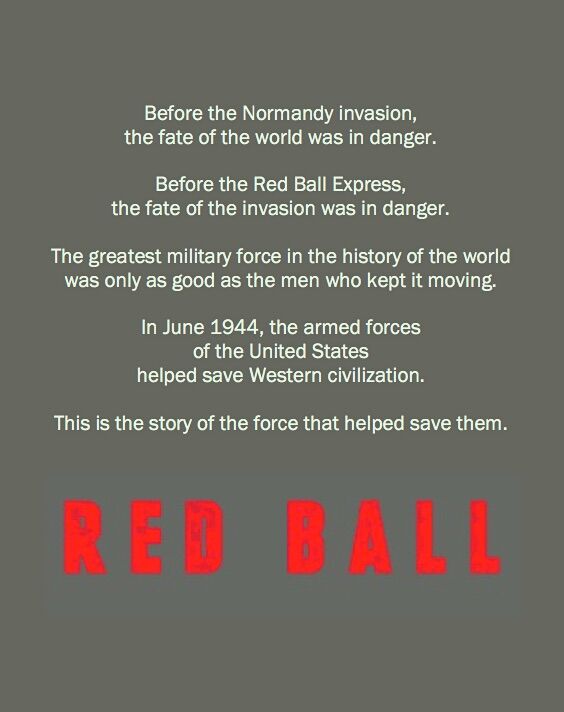THE STAGE 32 LOGLINES
Post your loglines. Get and give feedback.

RED BALL
By Michael Eric Ross
Four black American GIs and their Southern white convoy leader confront Nazis, a ruthless enemy sniper, the weather, and their mutual racial tensions in the Red Ball Express, the ambitious, dangerous supply operation that fortified U.S. forces in the pivotal months after D-Day.
SYNOPSIS:
For weeks after the D-Day invasion at Normandy in June 1944, the Allies and the armed forces of the United States moved with breathtaking speed to stop the Nazis from making further advances into France. But the fast American advance created a new logistical nightmare for the Allies: Some of its forces were moving faster than the food, fuel and supplies needed to keep them moving at all.
The Red Ball Express, conceived in the summer of 1944, was one solution to the problem: a nonstop series of trucks and trailers intended to supply U.S. and British forces at designated stops along highways dedicated to Red Ball drivers and no one else. The route’s early operation was conducted smoothly, but as the weeks and months continued, the Red Ball Express was hampered by a variety of challenges, some of them a consequence of policies in the still-segregated U.S. armed forces.
In this story, four black soldiers, truck drivers in the U.S. Army, join the improvised delivery service responsible for supplying the Allied invasion forces in the months after D-Day, between August and November 1944. Thomas (Sweet) Waters, Wilson (Willie) Riles, James Mathis, and Ollie Brown all hail from different parts of the United States, but they’re jointly committed to making their mark in the crucial last year of war.
Their unit leader, Robert Aiken, is a white officer born and raised in the American South, and heir to its legacy of discrimination. Aiken defers to the institutional inertia of the Army and the social inertia of the South to justify a belief system that lets him deny having anything in common with the soldiers he leads.
The conflict between soldiers and their leader deepens through operational challenges of weather, fatigue, mechanical failures, interpersonal conflict ... and their discovery of a ruthless, determined Nazi sniper who intends to slow their advance any way he can. This is a story of a battle not only between U.S. military forces and the Nazis, but also a war of wills between one commander and soldiers determined to prove their worth in the war that defined the 20th century.
The greatest military force in the history of the world was only as good as the men who kept it moving. In June 1944, the armed forces of the United States helped save Western civilization.
This is a story of the force that helped save them.


Rated this logline
Rated this logline
Rated this logline
Rated this logline